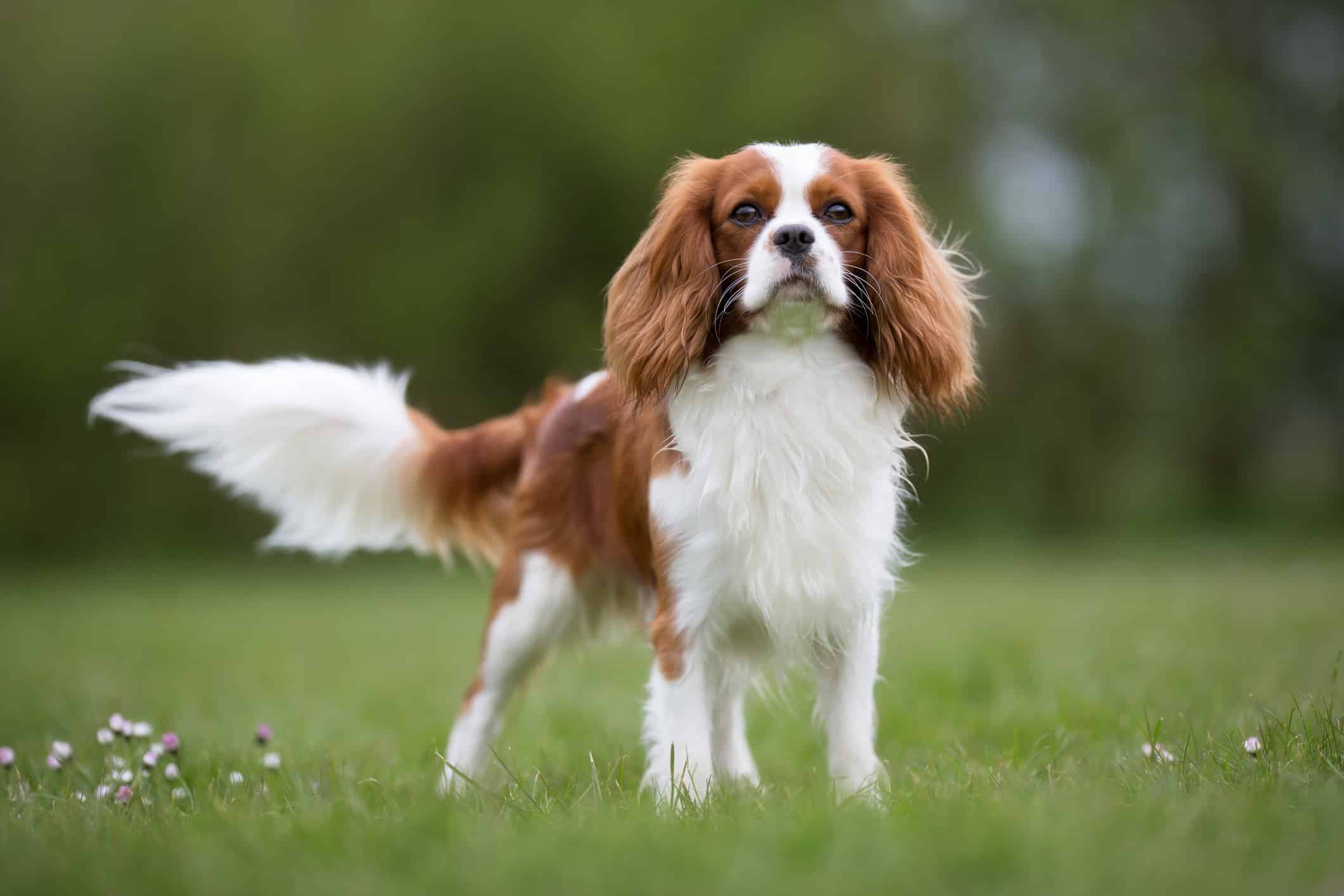Families searching for the perfect family pet often have to consider numerous factors before deciding. For those with children, a dog breed that’s gentle, affectionate, and patient is crucial. One of the most popular breeds in discussions of family-friendly small dogs is the Cavalier King Charles Spaniel.
Cavalier King Charles Spaniels are small affectionate dogs popular for their friendly and gentle personalities. But are these dogs good with kids? The short answer is: yes. Cavaliers are an excellent breed for companionship and would be a wonderful addition to your family.
This post will explore the temperament of the Cavalier Spaniels, their compatibility with children, training and caring for the dog, and common concerns and misconceptions about the dog.
You will also learn tips on integrating the dog with your kids to ensure that your family enjoys the benefits of these sweet-natured dogs. But before you settle on your dog’s name, here are some key physical attributes of the Cavalier King Charles Spaniel that you should know about.
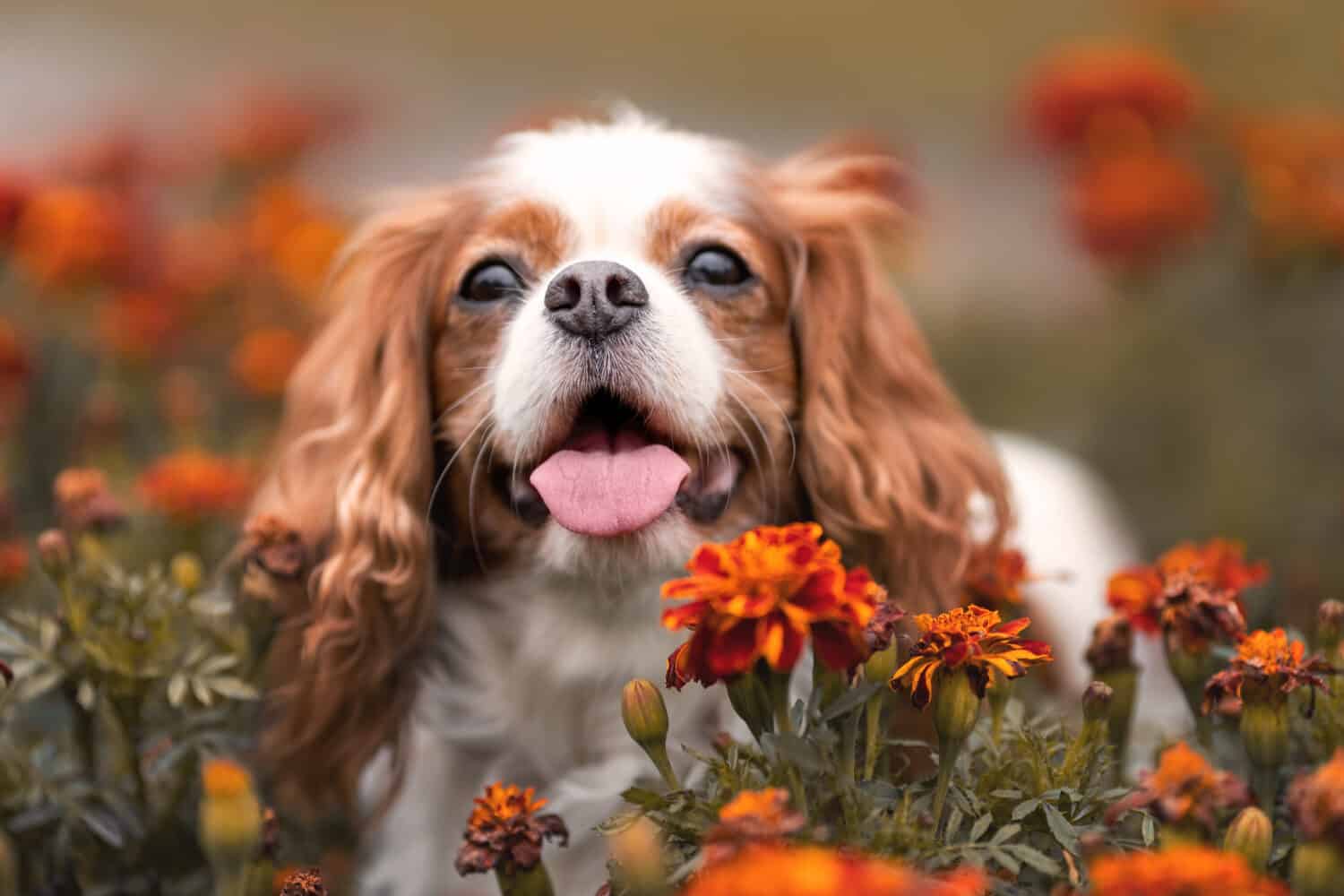
©Irina Nedikova/Shutterstock.com
How Big Do Cavaliers Get?
The Cavalier King Charles Spaniel is a small dog breed with a silky coat and a cute expressive face. This gentle dog can easily win the title for “top tail-wagger.” Here are some of the breed’s physical attributes:
Cavalier King Charles Spaniels are small dogs with a height of approximately 12 to 12 inches and weigh roughly 13 to 18 pounds. This makes them an excellent pick for families with small children, as they can play and tumble together without hurting each other.
The dog has a silky, medium-length, wavy, or straight coat. Cavaliers also have long fur around their ears, legs, and tail, which adds to their regal appearance. The breed is available in various coat colors, including Blenheim( rich chestnut markings on a white coat), tricolor ( black markings on a white coat with tan markings on the eyebrows, cheeks, and ears), ruby, and black and tan.
The Cavalier King Charles Spaniel has a compact and well-balanced body, a broad chest, and muscular legs. If the fluffy, wagging tail doesn’t melt your child’s face, the large, round, dark eyes surely will. The eyes give the dog a warm, cute, and lustrous demeanor.
Why Cavaliers Are an Ideal Dog Breed For Your Child
The Cavalier King Charles Spaniel breed was developed in England during the 16th Century as a companion for the royals and nobles. The dogs earned their name from King Charles II, a great admirer of the breed. Popularly recognized as a happy lap dog, the Cavalier King Spaniels also served other notable royal figures, including Charles I, Queen Victoria, and Princess Margaret.
Here are some factors that make these adorable dogs an excellent fit for your family:
Easy To Train
Cavalier King Charles Spaniels are affectionate dogs that love to please their owners. It’s no surprise to learn that the dog is easy to train and won’t require the high stimulation required in certain dog breeds.
The Cavalier Spaniel ranks 73rd out of 138 breeds on Coren’s Methodology for testing dog intelligence. The breed is identified as of average ability, picking up a new command within 25 repetitions.
Gentle and Affectionate
The Cavalier King Charles Spaniels are well-known for their gentle and affectionate nature. The dogs are rarely aggressive and would be an excellent gift for your child’s birthday.
These loyal companions enjoy cuddling and spending time with their owners. Find a comfortable bag, and you can carry them anywhere you feel like.
However, the dog’s gentle nature means the Cavalier may not serve as a good guard dog. Their small size and stature may not scare any intruders. Besides, most dogs in this breed will approach strangers with their tongues out and tails wagging, waiting to be petted.
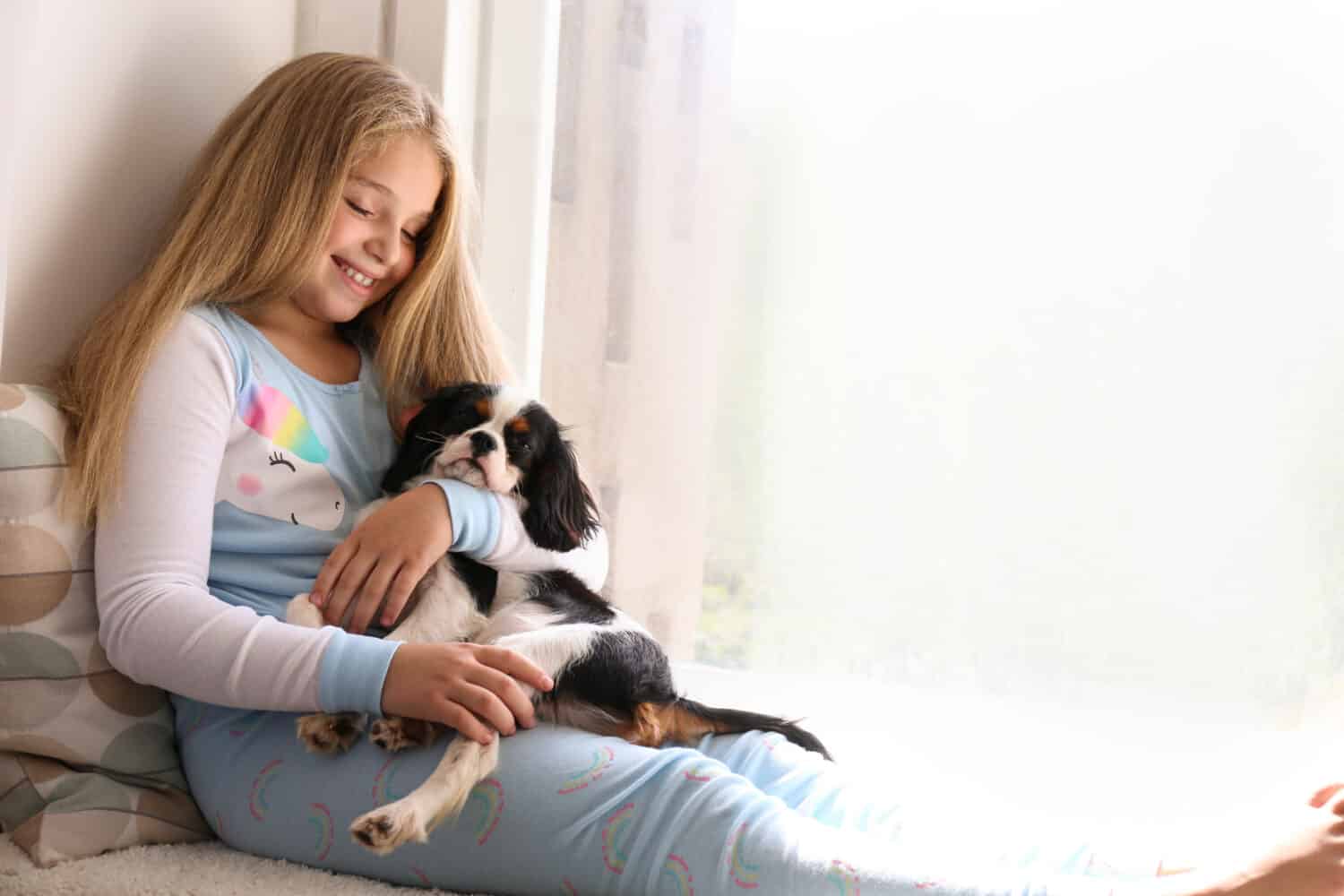
©evrymmnt/Shutterstock.com
Playful and Energetic
Despite their small size, the Cavalier King Charles Spaniels are lively and energetic dogs that love to play and have fun. Your kids may enjoy a game of fetch with their furry, four-legged companion.
The dog is also an excellent pick for families that love to travel and spend time outdoors. The dog can join you for your family morning jog or evening brisk walk.
Relatively Low Maintenance
The Cavalier King Charles Spaniel is a small dog breed that requires a moderate amount of food. A healthy adult Cavalier may need to eat only one to one and a half cups a day of dry dog food. This portion is spread out over two meals a day. This makes Cavaliers relatively easier to maintain.
However, it’s essential to remember that several factors affect the amount of food your Cavalier may require each day, including age, type of food, activity level, and health condition.
Cavaliers also have a medium-length coat that’s easy to maintain. While the dog requires regular brushing and occasional grooming, their coats do not shed as much. You don’t have to worry about the constant vacuuming and clean-ups associated with other dog breeds that shed fur heavily.
Excellent With Children
Cavalier King Charles Spaniels do well with all age groups, including children. Their gentle nature and love for petting make them an ideal choice for many families searching for a dog for their kids.
Some dogs may struggle to adapt, especially if your kids pull on their fluffy ears or tails when playing. That’s why dog training and child education about dog handling are essential parts of the preparation process before introducing the dog to the family.
Don’t Bark A Lot
Another excellent feature of the Cavalier Spaniels is their quiet nature. The dog typically communicates with whole-body wiggles or tail-wagging, letting you know they are ready for playtime or another treat.
This trait makes the dog an excellent choice for families with smaller children who may get startled by repeated loud barks. It also makes it a good choice for families living in apartment complexes who wouldn’t wish to keep waking up their neighbors with loud barks.
Training and Caring for Your Cavalier King Charles Spaniel
Before you introduce a Cavalier pup to share space with your kids, you may need to properly train it and educate your kids on how to take care of their new friend.
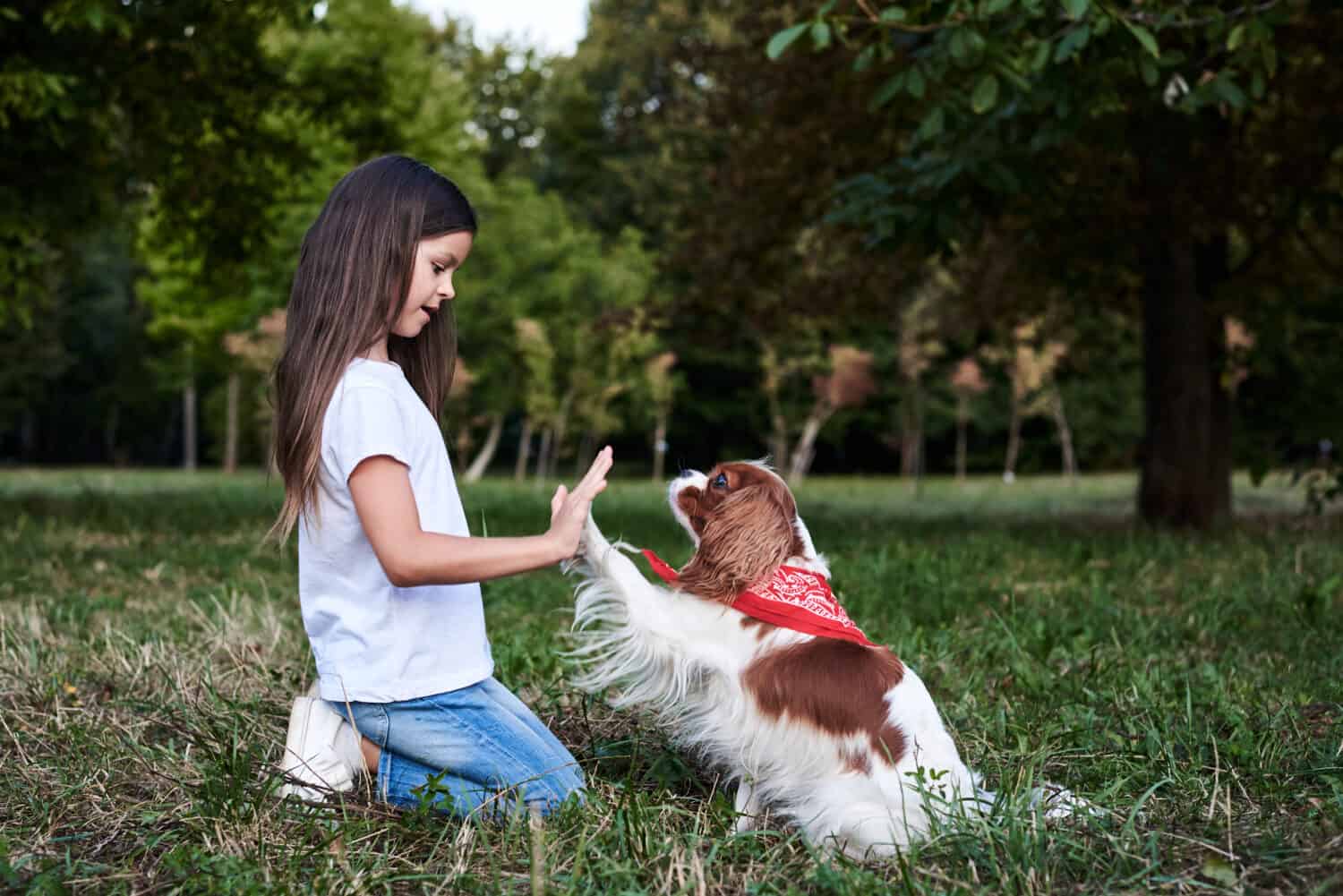
©Nataliia Martseniuk/Shutterstock.com
Training Needs of Cavalier King Charles Spaniels
Cavalier King Charles Spaniels are intelligent dogs, making them easier to train and an excellent choice for first-time dog owners. Positive reinforcement methods work best for members of this breed.
Cavalier Spaniels are typically sensitive and don’t respond well to hostile or harsh treatment. Consistency and patience will come in handy when training the dog.
It would be best to begin the training and socialization for the pup as early as possible for effective results. Start with basic commands and instructions like “Stay,” “Come,” ”Stay,” “Heel,” and “Sit.” You can then proceed to more advanced behavioral training, such as crate training, house training, appropriate chewing, and much more.
It’s advisable to keep the training sessions short, roughly five to ten minutes, with treats as a lure and reward. You may also give them a pat or a belly rub.
Preparing For Your Cavalier’s Arrival
You need to take caution when introducing a new dog to your kids for the first time. While the Cavalier King Charles Spaniel is friendly around children, sudden tags or accidental stomps on the dog can result in nips and bites. As a parent, talking with your kids about handling and caring for the dog is essential.
Read blogs and books about pet care and pass the information on to your kids. You can also watch videos on the safe handling of dogs together. Play a make-believe game on what they learn by practicing on a stuffed animal at home.
Lay Down Rules On Dog Handling
The next preparatory step involves establishing guidelines on what to do or not to do when around the new pup. Once you bring the new Cavalier home, gently let them smell your children and get used to the scent.
Let your older children help you set up the pup’s sleeping area. You can use baby gates or room dividers to create effective boundaries.
Create daily schedules for feeding, grooming, sleeping, and playing. Adhering to a specific routine can ease the learning curve for your new puppy.
Never leave young children unsupervised with the dog. It’s also wise to give your new pup a day or two to settle down in the new surroundings before your children can invite friends or family for a meet and greet.
Buy The Dog Products Beforehand
You may need to purchase some essential dog supplies before you bring the pup home. Consider shopping for necessary items, such as
- leashes
- collars
- beddings
- feeding and water bowls
- chew toys
- Grooming brushes and nail trimmers
- dog food
Having these supplies at hand gives you a chance to spend more time with your dog.
Feeding, Exercise, And Grooming Requirements
Cavalier King Charles Spaniels require moderate exercise, and a play session with your kids or a daily walk may suffice. The pup may start feeling tired after 15 to 20 minutes of play, and it’s essential to ensure that your children do not push the dog to its limits.
On average, a Cavalier King George Spaniel pup needs ¼ to a full cup of dog food daily. The food ration may depend on age and size. As the dog matures, the food needs may increase to one to one and a half cups.
As a Toy Spaniel, the Cavaliers are prone to obesity, and it’s essential to monitor their food intake and ensure that they are getting enough exercise. Consult your vet on the appropriate food type and amount for your pup.
The dog may require brushing at least twice a week to prevent matting and tangling. Spaniels also need regular bathing, nail trimming, and ear cleaning to maintain good hygiene and prevent infections.
Common Concerns About Cavalier King Charles Spaniels Living With Children
While the Cavalier King Charles Spaniels are extremely friendly, families with kids should know these unique challenges when owning this dog breed. Here are the most common concerns:
Fragility
Cavalier King Charles Spaniels are small-bodied and can suffer injuries easily when mishandled. You may have to teach your children proper handling before introducing the dog. You should also supervise all interactions to ensure that playtime remains safe for your children and the dog.
Separation Anxiety
Cavalier King Charles Spaniels are highly affectionate dogs. They form attachments quite easily with their owners and may suffer from separation anxiety if left alone for extended periods. It may result in destructive behavior or excessive barking that may become an issue, especially with small kids within the home.
You can gradually train your Cavalier to remain calm by themselves through desensitization. You can begin by leaving the pup alone for short periods and progressively increasing the duration over time. Consult a vet or animal behaviorist for professional help if the separation anxiety is severe.
Allergies
Sadly, these super-sweet fluffy dogs aren’t hypoallergenic. Cavalier King Charles Spaniels shed throughout the year and can leave hair behind on clothes and furniture, a potential problem for people with allergies.
Have your children tested for allergies before bringing any pets to your home? While no breed is 100% hypoallergenic, there are crossover breeds that are better suited for families searching for hypoallergenic dogs.
Some examples include the Cavachon, a cross between a Cavalier King Charles Spaniel and a Bichon Frise, and the Cavapoo, a cross between a Cavalier King George Spaniel and a poodle.
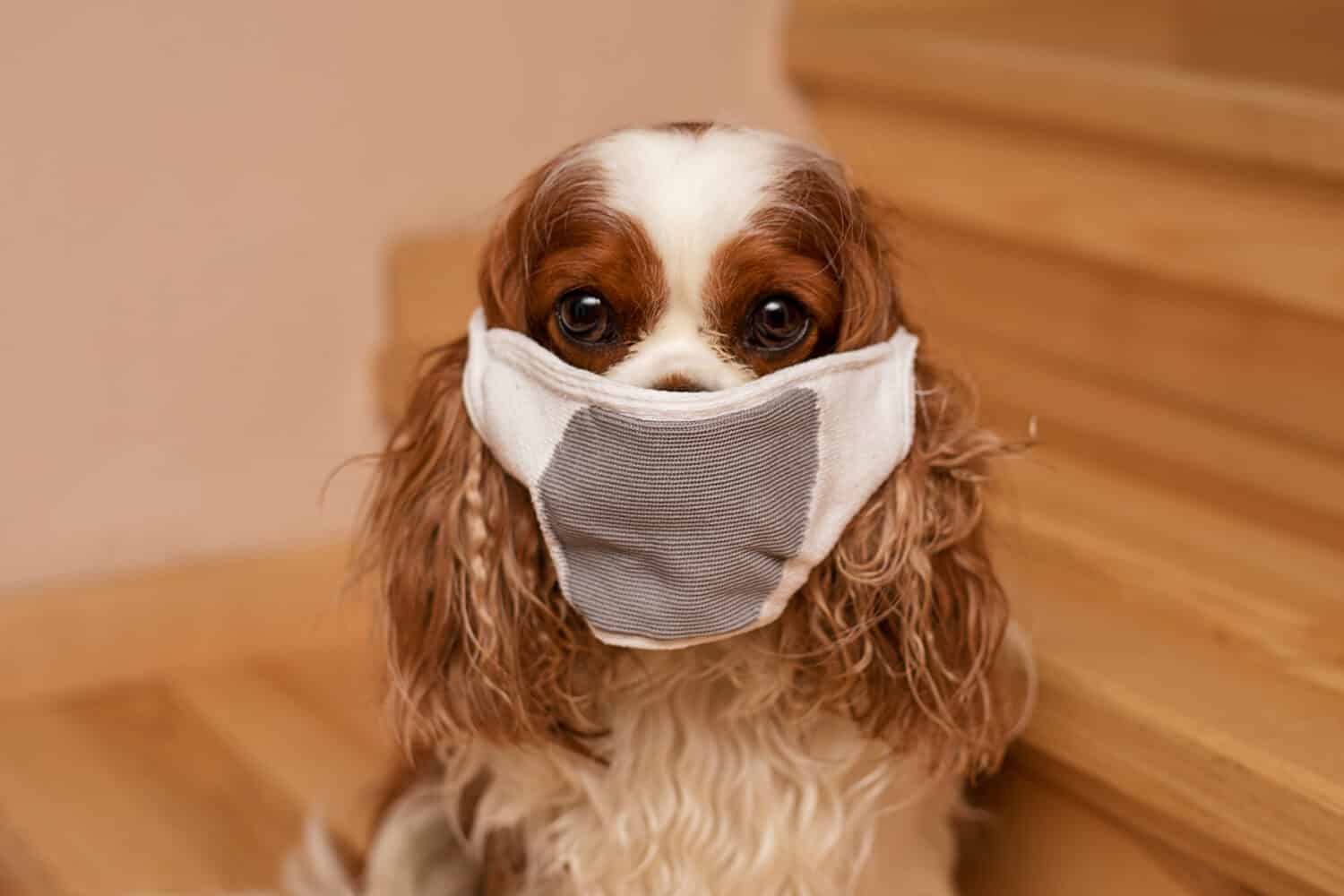
©tativophotos/Shutterstock.com
Health Problems
Like many purebred dogs, the Cavalier King Charles Spaniels are prone to certain health issues specific to the breed. Some of the common health problems include:
- Mitral Valve Heart Disease: A serious condition where the mitral valve weakens and doesn’t function effectively.
- Eye problems: These include inherited health issues such as cataracts.
- Episodic Falling: This is a unique condition to Cavalier King Charles Spaniels, where the dog appears to have a ‘fit.’ The condition is caused by the stiffening of the muscles leaving the body rigid.
- Syringomyelia is a neurological condition where fluid-filled areas develop within the spinal cord near the brain.
- Bad Teeth: This is a common issue for all dog breeds but is more prevalent in Cavalier King Charles Spaniels due to their shorter muzzles.
- Luxating Patellas: This is a condition where the kneecaps slip out of place temporarily.
- Curly Coat/Dry Eye: A condition that affects the skin, nails, coat, and eyes and causes severe dry eye syndrome.
If you plan to buy a Cavalier King George Spaniel, getting one from a Kennel Club Assured breeder is recommended. Reputable breeders perform the necessary testing and screening for the dogs they raise. We also recommend discussing the medical history of the pup’s parents and grandparents with the breeder to avoid dogs with multiple conditions listed above within the family line.
You may also have to discuss the possibility of tending to a sick dog with your child. Your kids may be emotionally and mentally affected by seeing their furry friend suffering from illness.
Verdict: Are Cavalier King Charles Spaniels Good With Kids?
After careful consideration of numerous factors, including dog size, temperament, maintenance, and training, it’s safe to say that the Cavalier King Charles Spaniel is an excellent breed to buy for your child. The dog offers more than a gentle and friendly temperament.
Consider purchasing a Cavalier King George Spaniel from a reputable breeder and surprise your kid on their special day.
The image featured at the top of this post is ©iStock.com/Bigandt_Photography.
